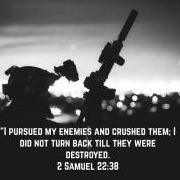Take the emotions out of this. Nobody is saying these guys were idiots. We all have survived multiple screw ups that could very well had ended the other way; we all screw up. Two of my good friends weren't idiots idiots either, were great dudes and above average pilots, but in the end, complacency kills. I sure as shit have made many a mistake and missed a flight control check (and many other things), but it was due to task saturation/distraction, not due to "the T.O. doesn't say I have to, so I won't" or "it was good last flight, nothing could possibly happen/a part fail in between flights." I think its a dangerous mindset to say, "what could have possibly happened since I last looked?" or "it's not in the checklist, so it." That is absolutely the wrong approach to teach people (especially young, impressionable people). This was not one of those unidentified, obscure things nobody thought of until a mishap occurred; it is absolutely something that applies to every aircraft, and again, should be taught to everyone who learns to fly, military or civilian. This is not shitting on people, it is highlighting the extreme importance of the "simple things." Scoff simple things (consciously or subconsciously) and it can end very badly...there's tons of accident reports that point to that, and as you mentioned, we're all vulnerable 100% of the time to making simple mistakes that end tragically.





